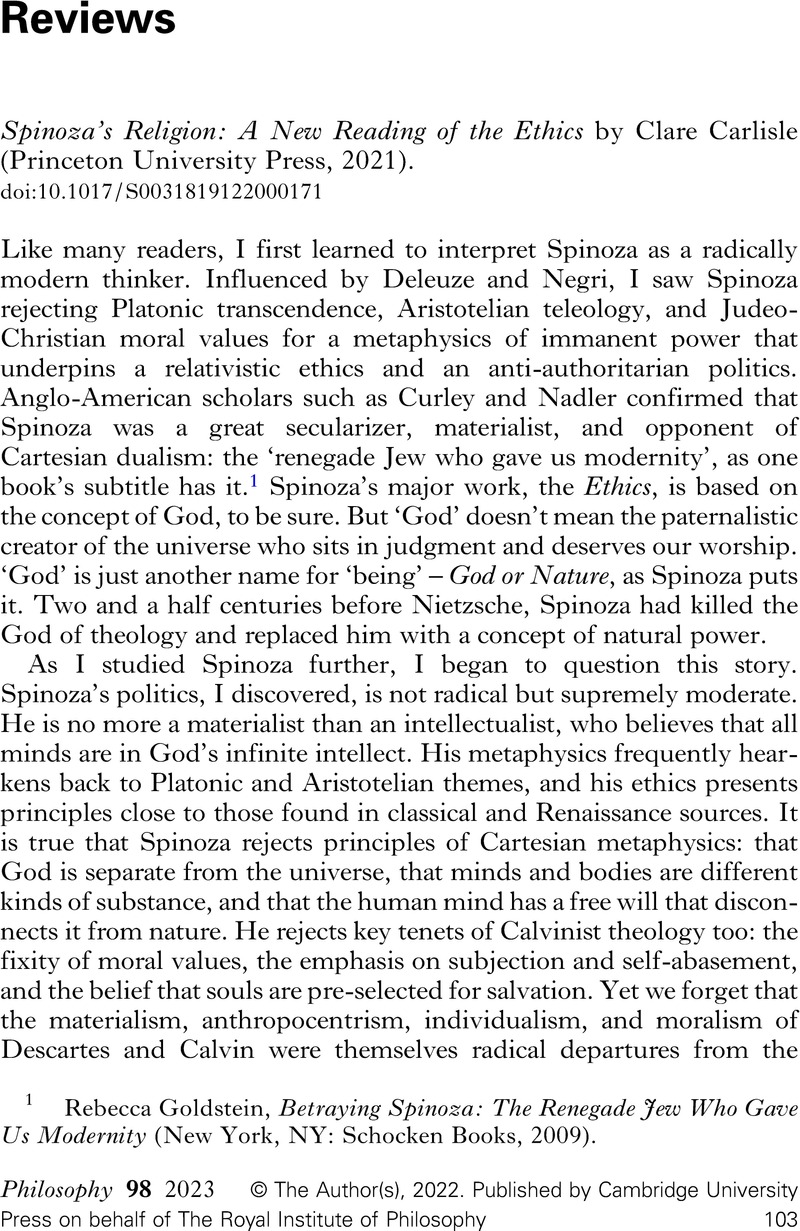No CrossRef data available.
Article contents
Spinoza's Religion: A New Reading of the Ethics by Clare Carlisle (Princeton University Press, 2021).
Review products
Spinoza's Religion: A New Reading of the Ethics by Clare Carlisle (Princeton University Press, 2021).
Published online by Cambridge University Press: 15 June 2022
Abstract
An abstract is not available for this content so a preview has been provided. Please use the Get access link above for information on how to access this content.

- Type
- Review
- Information
- Copyright
- Copyright © The Author(s), 2022. Published by Cambridge University Press on behalf of The Royal Institute of Philosophy.
References
1 Goldstein, Rebecca, Betraying Spinoza: The Renegade Jew Who Gave Us Modernity (New York, NY: Schocken Books, 2009)Google Scholar.
2 de Spinoza, Benedictus, The Collected Works of Spinoza. Vol. 1, ed. Curley, E. M., vol. 1, 2 vols (Princeton, N.J: Princeton University Press, 1985)Google Scholar. Ethics, IP18.



